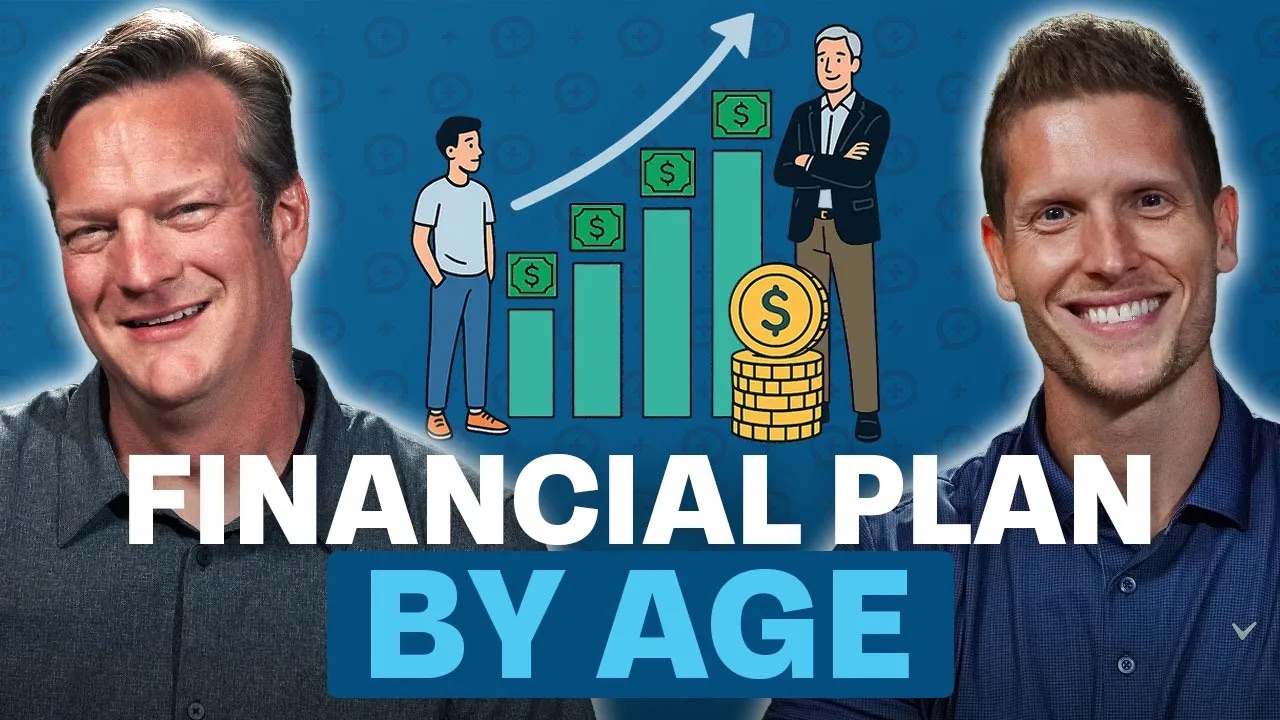Buckeye fan 14 has a question. It says, "Why do the Money Guys recommend saving in a taxable account when there are ways to access retirement accounts before 59, such as the Roth conversion strategy and Roth basis, etc.? Isn't that unnecessary taxes?"
Well, okay, let's go down this path. We're not suggesting... I'm sorry, you didn't come at me confrontationally, so I'm not going to come at you confrontationally. It was more like, "What's the problem with Roth assets?" So, we're kind of limited in how much Roth we can get. You know, we can either do the $6,500 or $7,500 if you're over 50, or if you're doing the 401(k), you can do the $25,000 or $30,000 on the Roth 401(k) side. And yes, you can build up basis and do it that way. But remember, if you're working through the financial order of operations... Brian, you hold it up for me real quick. Oh yeah, there it is. In step five, you've maxed out all your Roth options, or your tax-free options. You've done your Roth, you've done your health savings account in step six. Then you go max out your employer plan based on your tax rate. You're either doing all Roth 401(k), or you're going to do all pre-tax 401(k). Well, once you've maxed all that out, once you've done all that, and you still have extra money to save, where are you going to put it? Right? You don't have another tax-deferred, tax-incentivized option.
So, we are not advocating saying, "Hey, you should be taxable. You should be doing a taxable account in lieu of doing those accounts." It's why it's step seven and not step six, not step five. If you are building taxable assets, it's because you've already maximized those available buckets that were there and present for you. I think I was understanding his question. That's what he was asking: "No, he's saying, 'Look, there are all these loopholes like Roth, pulling money, basis out, and so forth. You break the glass, get to your Roth, do that.' But it's still... We are thinking in a tax-smart way, and we are thinking about it a little more in terms of legacy and what's the opportunity cost and ability to build. Because I look at Roth accounts, I guess you'd call me Gollum, and the fact that it's like my precious. I mean, I absolutely love tax-free growth because it builds tremendous legacy opportunities.
And every year, because I pay a lot of taxes, I just want you to know I pay a ton of taxes. But when I look at that Roth account, I'm like, "I got you, Uncle. I'm going to give you every bit of what you're owed." But this one, this one, I get to stub my nose at you a little bit because I've built all this tax-free growth opportunity. So, Buckeye fan 14, I don't think that we're trying to create more taxes. We're just trying to let that compounding growth really maximize to turn you into that tax-free millionaire. Because that's the part that gets me excited. When you build seven figures of Roth assets, that compounding starts stacking on top of each other, and the uncle is just like, "Man, how did we let them get in this situation?" Because it brings it full circle back to what Bo said. The government restricts how much you can put into Roth accounts for a reason, as they know that they have given you something that is sugary sweet and awesome. So, you better take advantage of it and maximize it as much as possible.
And this clarification helps me out tremendously because he's probably now thinking about... Was it 72(t), where you can annuitize? You can essentially turn any IRA into an annuity stream before 59 and a half and start taking it. So, even if you retire at 45, you could do this strategy. You see people talk about this loophole. But here's the reality of why after-tax is probably going to be a better choice here. It's back to Gollum being my precious. Is that if I have the ability to have a big enough brokerage, after-tax account, to kind of be that bridge to when I can get to the 59 and a half or some of the other 55 assets, if you have a 401(k), it allows me to have as much conversion time to turn tax-deferred assets into tax-free Roth assets because I love legally manipulating the tax code. That gets me really excited, thinking about what the opportunity could be for those dollars. Once again, it's back to the tax-free millionaire. If you can get to seven-figure status with a Roth account, man, that is a crowning achievement that I'm working on, and I think it's one of those really cool things if you can make it happen. For more information, check out our
free resources.













